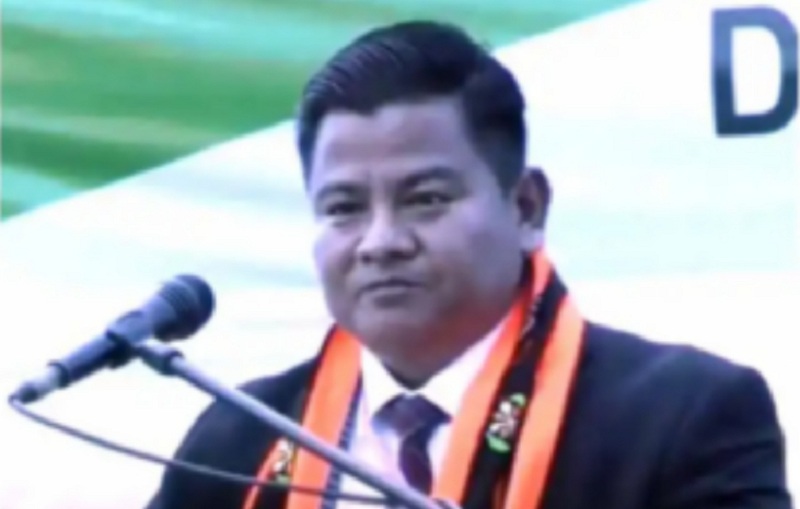Kohima: Amidst the ongoing Naga peace talks, senior NSCN-IM leader Ikato Chishi Swu on Friday announced his decision to join the group’s Myanmar-based “eastern flank” run by two Naga rebel leaders HS Ramsan and Absalom Raman.
He said he had decided to join Naga rebel leaders based out in Myanmar to “carry forward the Naga struggle.”
Swu said he saw “no future and no solution to the Naga issue under the present leadership”.
Ikato is a senior leader and son of (NSCN-IM) co-founder Isak Chishi Swu who was part of the biggest Naga insurgent group which has been maintaining ceasefire since 1997.
In a statement, Swu accused the current leadership of NSCN-IM of straying from the Naga cause and expressed his disappointment at the way the peace talks have been handled since the NSCN-IM and the Government of India signed their first ceasefire agreement in 1997.
Ikato also stated that the Centre ‘betrayed’ the Nagas by not implementing the Framework Agreement, which was signed in 2015 just before the demise of his father Isak Chishi Swu.
The NSCN-IM was founded by Isak Chishi Swu and Thuingaleng Muivah. Swu died in 2016 while Muivah is now the group’s general secretary, whom they call “Ato Kilonser” (Prime Minister).
During the 28 years of ceasefire, the government had succeeded in corrupting NSCN-IM leaders, he said.
These trapped leaders, he said, had begun to compromise the Naga “national interest” and many of them were on the payroll of intelligence agencies.
Swu also alleged that positions within the NSCN-IM hierarchy could be purchased by paying huge sums of money.
The two rebel leaders based in Myanmar were functioning independently without help or direction from Hebron, the NSCN-IM’s designated headquarters, due to bad blood between the group’s armed wing chief Anthony Shimray and other leaders.
Ikato’s departure is seen as a setback to the ongoing peace process between the Centre and NSCN-IM, which began following a ceasefire in 1997.
The Framework Agreement, signed in the presence of Prime Minister Narendra Modi in September 2015, was to be the basis for signing a final agreement to end the 76-year-old Naga conflict.
ALSO READ: Nagaland: Administration imposes total ban on single-use plastics in Pungro
But the government said the final agreement has not yet been possible mainly due to NSCN-IM’s insistence on recognition of Naga flag and the Constitution.















